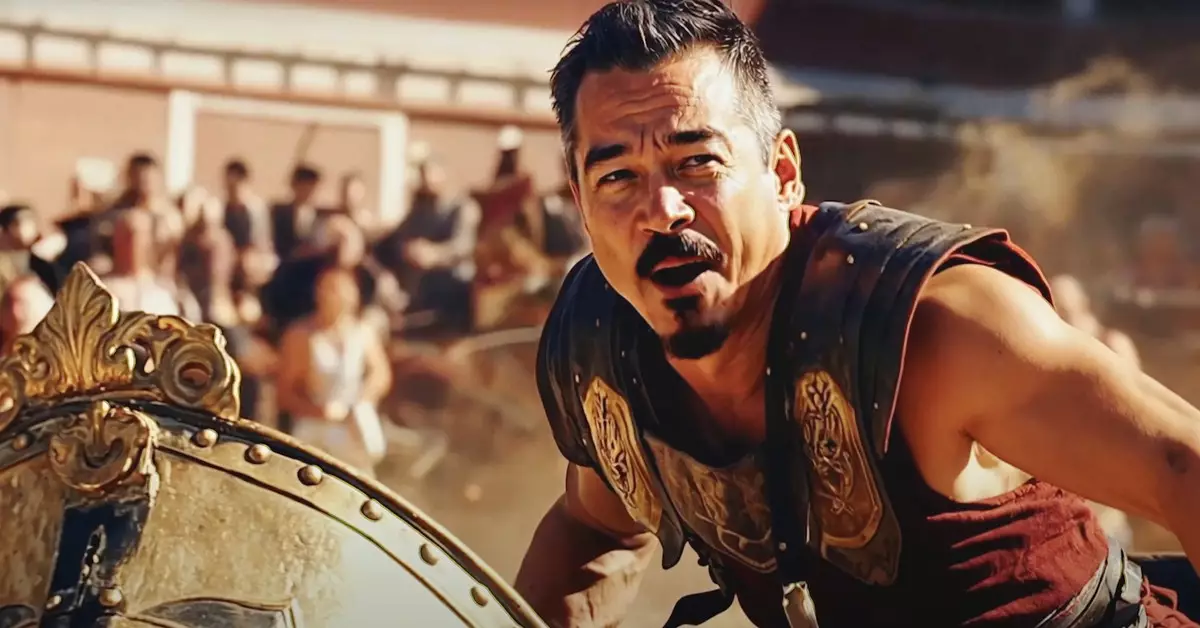The intersection of technology and art continues to evolve, sparking both fascination and skepticism. Recently, TCL launched an ambitious project involving a series of AI-generated short films, including the much-criticized “Next Stop Paris.” These films aim to enhance the capabilities of artificial intelligence in the realm of storytelling and animation. However, the execution has raised more questions than applause among viewers and critics alike.
Artificial intelligence has shown remarkable potential in numerous fields, from healthcare to finance. Yet, when it comes to creative endeavors like filmmaking, this technology often stumbles. The initial trailer for “Next Stop Paris” demonstrated the stark limitations inherent in AI animation—characters with rather blank expressions, poorly synchronized dialogue, and a consistent lack of emotional depth. Such flaws prompted an outcry from the audience, with many expressing doubts about the project’s artistic validity.
To TCL’s credit, it did not stop after the lukewarm reception of “Next Stop Paris.” Instead, the company pushed forward, releasing five additional AI-generated short films. While some improvements were evident in these new productions, they largely underscored the underlying struggle of AI to replicate the nuanced intricacies of human emotion and storytelling.
The five films featured by TCL can be categorized from “tolerably watchable” to “wish I could unsee this.” A notable aspect of these films is the recurring issue of storytelling coherence. One film mirrors Ray Bradbury’s “All Summer in a Day” and centers on a girl who dreams of witnessing the sun after being isolated by bullies. Although the narrative has promise, the AI-generated sequences become increasingly convoluted. The protagonist’s supposed telepathic communication with her father and outlandish encounters with bizarre creatures only distract from what could have been an emotionally compelling journey.
Another film, “Project Nexus,” appears more like a brief preview than a complete story. Its narrative follows four teenagers who gain supernatural powers from a mysterious rock but concludes abruptly, leaving viewers with a sense of incompletion. The facial animations fail to impart any real emotion, leaving the audience detached from the characters’ experiences.
The film that adopts a docufiction style presents additional complications. It features an actor recounting a harrowing personal story of survival amidst a snowstorm, interspersed with AI-generated visuals. The blend of reality and artificial recreation muddles the authenticity of the narrative. It raises essential questions about the veracity of experiences portrayed through AI and the ethics of storytelling.
The attempt at a comedic short film, “The Audition,” devolves into an exercise in absurdity without achieving its intended humor. The bizarre journey of an actor trying to please an overly specific casting director reveals more about the limitations of AI-driven humor than it does about human creativity. The scene where a character morphs into various well-known figures feels forced and lacks the cleverness associated with successful satire or comedy, leaving viewers with more confusion than laughter.
Particularly jarring is a film revolving around a woman suffering from arthritis who eventually transforms into a slug. The tonal shift from a mundane medical struggle to sheer grotesqueness is disconcerting, showcasing the potential for AI to create disturbing content but failing to provide a coherent commentary or artistic statement. Such narratives can be reminiscent of Kafka’s work, yet they lack the depth and insight of literature that grapples with existential themes.
Ultimately, TCL’s foray into AI-generated films raises crucial questions about the future of storytelling. While technology can assist in the creative process, trusting AI to assume full creative control may be premature. The films, while ambitious in their attempt to innovate, serve as a reminder that the craft of storytelling requires the unique human ability to evoke emotion and complexity—a feat that AI has yet to master.
As we navigate this new landscape of film production, it is vital to critically assess the quality and implications of AI-generated content. Perhaps the journey of employing AI in creative fields is merely in its infancy, but as it stands, viewers are left yearning for the emotional richness that only human storytellers can provide. While TCL’s offerings illustrate the potential of AI, they also highlight a significant gap in emotional engagement, narrative clarity, and overall artistry. The conversation around AI in film is far from over; its evolution warrants both continual examination and open dialogue about the balance between technology and creativity.


Leave a Reply